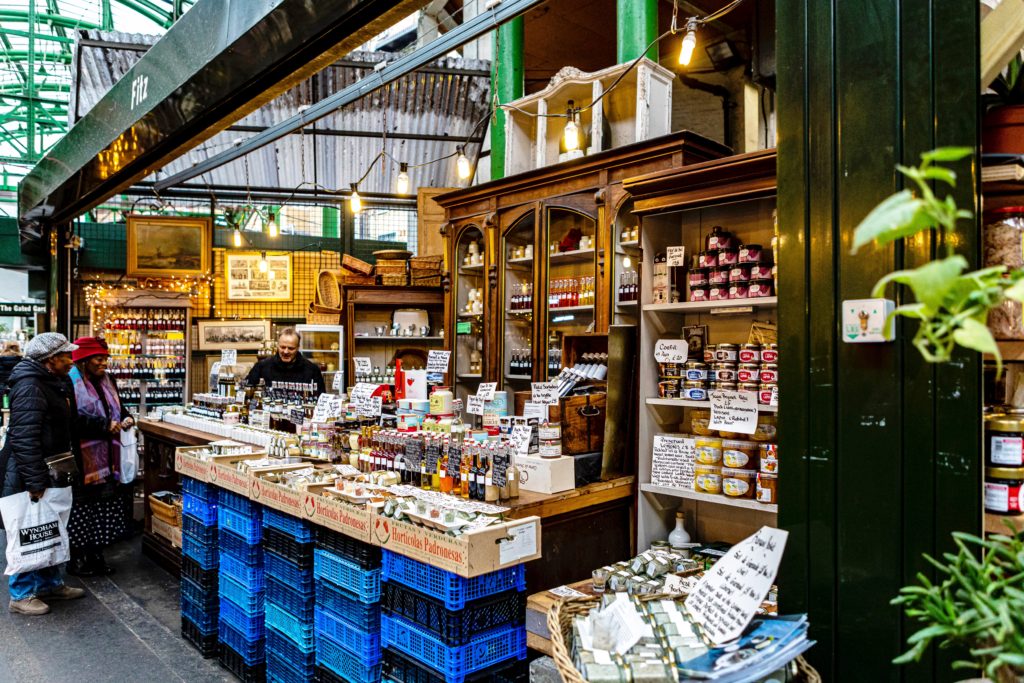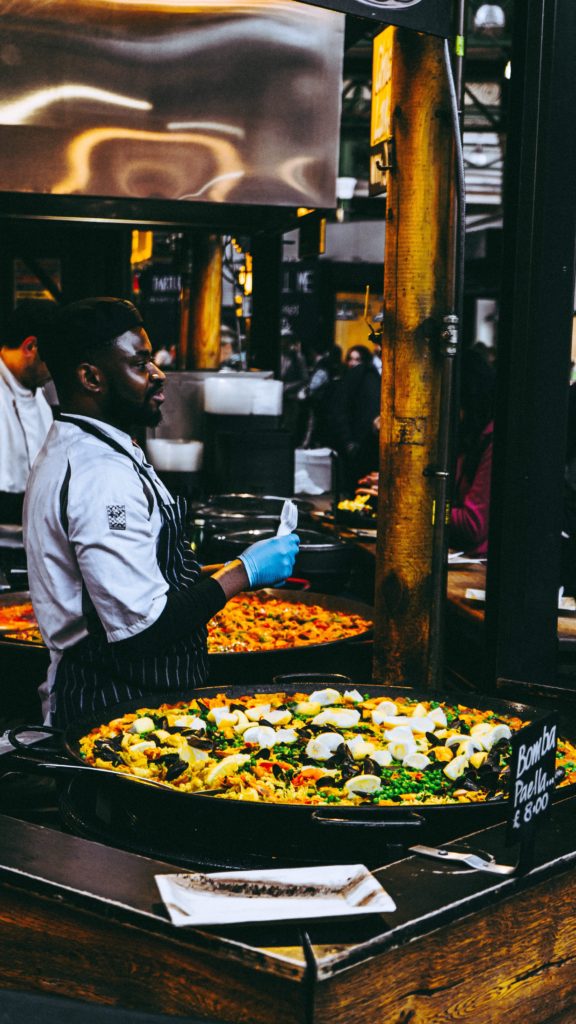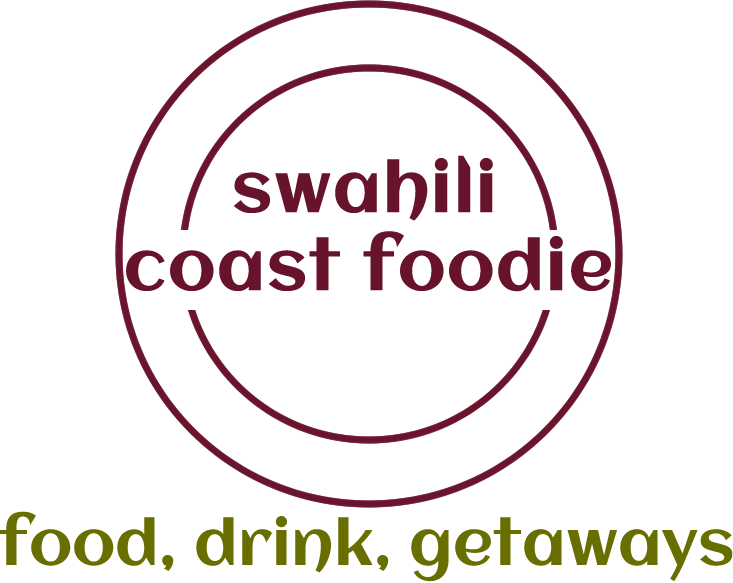
London’s celebrated Borough Market has faced unprecedented challenges since the start of 2020. For Lucy Charles, Head of Commercial at the Market, the foodie hotspot has adapted to the new trading environment while also discovering it has been a catalyst for positive change.
‘I am pretty proud to say throughout the pandemic we have stayed open’ explained Lucy Charles who addressed a virtual audience at the 2020 FoodTrex summit held in November. While the Borough Market has benefited from being an open air rather than indoor public space, Lucy was clear about the impact of the pandemic after the government announced the first lockdown: ‘Fundamentally, everything we had known until that point in March disappeared,’ recalled Lucy, ‘We had to kind of re-think the way we did almost everything.’
The popular tourist attraction, that in pre-pandemic times annually attracted some 16 million visitors, experienced several immediate effects with some of the 150 traders having to ‘mothball’ and catering operations shutting down. On a typical Saturday in March the Market attracted up to 140,000 visitors. This would dramatically change at the start of 2020. ‘It became a really strange ghost town,’ recalls Lucy, ‘Footfall just evaporated.’

While interest ‘exploded’ in the market’s online shopping service (that had launched in September 2019), the charitable foundation that manages the Market was determined to keep physically trading. As shoppers began to return it was necessary to plan how to safely control the flow of visitors around the ‘complicated site’ that has roadways weaving around Borough Market’s two core spaces. The Market’s management investigated queuing systems and one way routes while installing sanitising units and extra hand-washing stations. As barriers were erected by additional security personnel, it was quickly realised that visitors had to be effectively helped to observe social distancing and other Covid-19 safety measures. ‘Getting our messaging right at the time was really challenging,’ says Lucy, ‘It was a really sensitive time.’ For Lucy, the Borough Market team are clearly mindful that their destination is a ‘convivial place’ but have worked to balance this with enforcing the safety requirements arising from the pandemic: ‘We try to make our messaging as clear as possible at a time (arguably) when messaging coming from our [government] leadership was not that clear. I think there has been a lot of confusion this year.’
Lucy also highlights that ‘positives’ quickly arose as Borough Market became a welcome antidote to the pressures of life in lockdown: ‘People could come for their daily exercise. It was a nice place for people to come to get out of the four walls they had been confined to.’ Now the Market is seeing numbers returning despite the imposition of a further national lockdown in the autumn. Lucy explained the main challenge for the market operators continues to be keeping the space safe, especially in the approach to Christmas.
Borough Market, however, is also acutely aware some traders are still struggling. Lucy explained while core produce traders, such as butchers or bakers, remain in demand from city residents those speciality stalls focused on tourists face difficult times. While Borough Market’s head of commercial reveals the market has not seen any business collapse to date, she remains ‘nervous’ about the next six months. In response to this situation, rather than offering ‘blanket’ rent discounts, targeted grant allocations are being offered to struggling traders.
Meanwhile, the Borough Market team has also faced its own challenges. ‘We are running at 50 per cent of the run cost we used to have,’ explains Lucy, ‘We have cut back on anything that is non-essential.’ The smaller team, however, have achieved outstanding results in areas such as communications, publicity and community engagement. Keeping customers and wider online followers effectively engaged has been a key priority. Weekly market cookery demonstrations using market-sourced ingredients has now gone online. Local charities continue to be supported and school outreach is taking place online.
The innovation and agility fostered in response to the changing operating environment has brought unexpected benefits. ‘It’s been the catalyst for a positive change,’ says Lucy who highlighted the improvements arising from managing visitors on the site. According to Lucy: ‘It just makes the whole experience of being here much better. We are now thinking about the way people flow through the market.’ Offering al fresco dining has been a ‘real success story’ for Lucy and will be a regular feature in the Market.
While an Emergency Committee formed from trustees and senior management have met since the outbreak of the pandemic in the UK to weekly review risk and business continuity, the historic market has future planning at the forefront of its activities. Lucy believes that the changes arising from the pandemic will leave a lasting impact on those ambitions: ‘The whole pandemic has fundamentally changed the way we will use the space here…We are always looking to develop the Market space.’ This includes upgrading the presentation of the produce offering but budgetary considerations may limit improvements to the physical space in addition to desired accessibility and tech upgrades.

Clearly the ability of Borough Market to stay open is a tribute to the agility of the management and the resilience of the traders. Let’s hope that the next year brings brighter prospects for all who are working to showcase the best of ingredients, produce and culinary skills around the globe.
Lucy Charles was speaking at the FoodTrex Innovation Summit organised by the World Food Travel Association.
Top image: Borough Market, London (Credit: Dom J).










